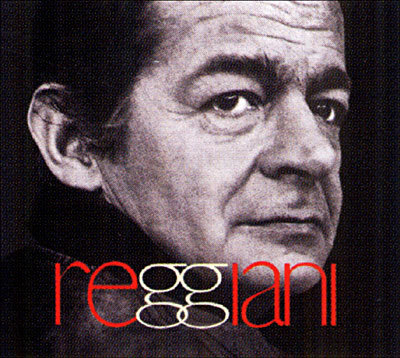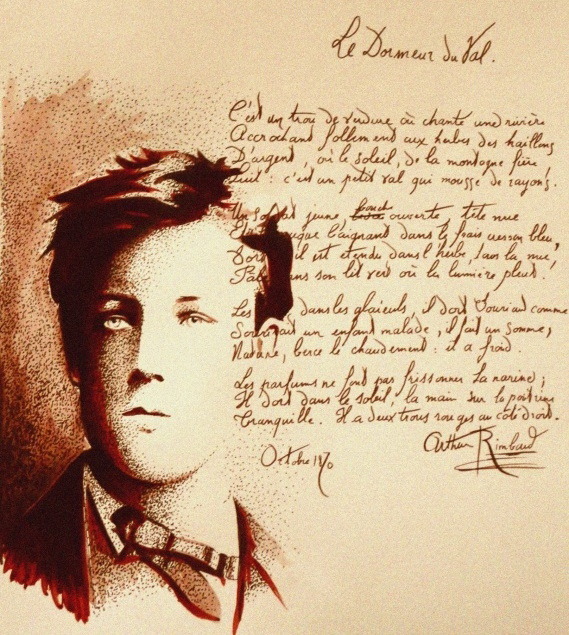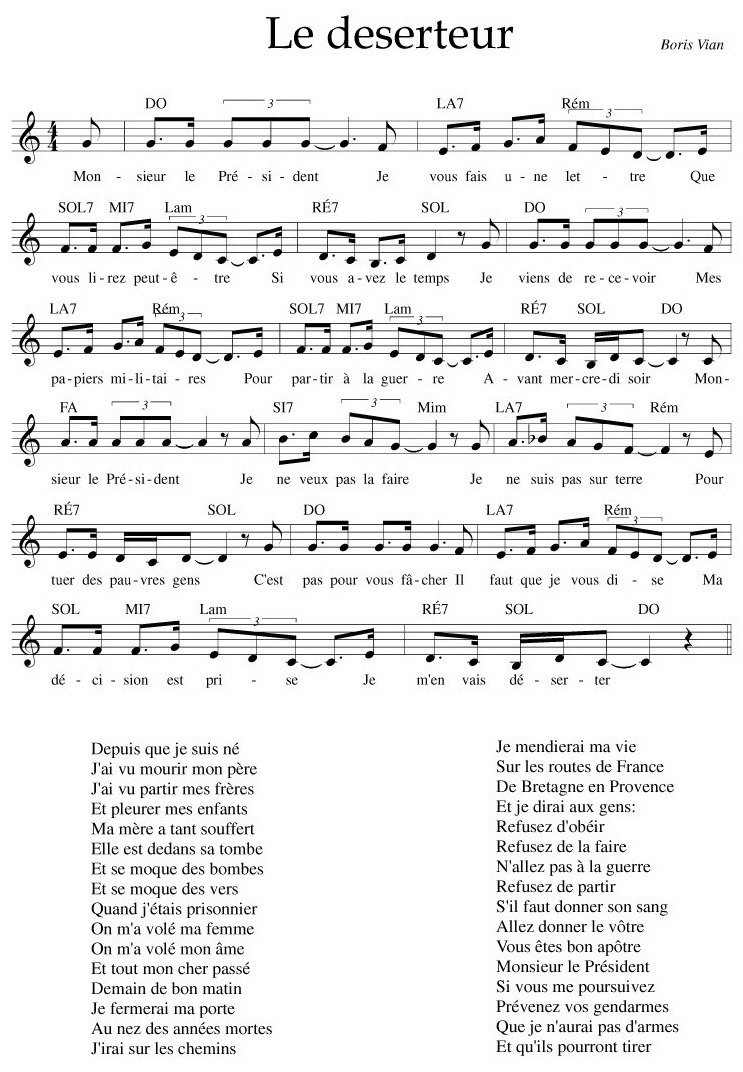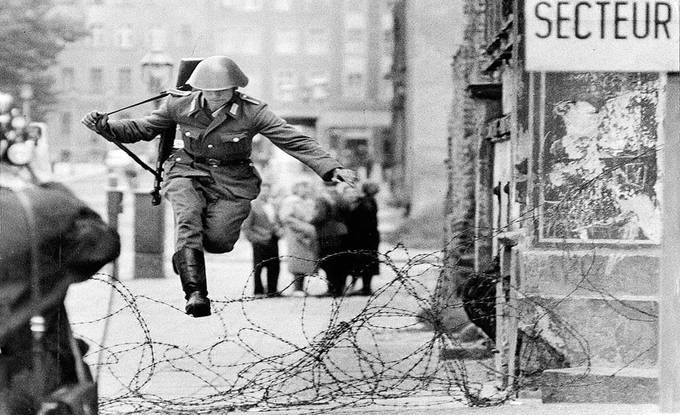
Le Déserteur (The Deserter)
par (by) Boris Vian et (and) Harold Berg
par (by) Boris Vian et (and) Harold Berg
Boris Vian (1920-1959), a French
engineer by education, gifted with amazing talents, was at any one time a
poet, a novelist, a musician, a jazz trumpeter, a singer, an actor; he
also was a pacifist, an anti-power genius with une sensibilité à fleur de peau.
He is remembered for tantalizing finesse, sensitivity, creativity, and originality.
From L'Ecume des Jours and L'Arrache-cœur, to L'Automne à Pékin, Boris Vian exemplifies humaneness and solidarity.
To listen to a beautiful rendition of Le Déserteur, try Serge Reggiani or Mouloudji, two famous anti-militarist singers.
For the purists and other aficionados, Joan Baez and Peter, Paul and Mary have had a slightly modified version of the song in their repertoire, that was originally interpreted by Mouloudji (1922-1994) in 1954. Peter sang it in solo and in French.
The song was censored/banned in France during the Indochina War. It is also said that the last two verses of the song originally read, "que je serai en arme/et que je sais tirer" (that I'll be armed/and I know how to shoot) but that it was changed to reflect the pacifist and anti-militarist character of the song.
Swans' English translation of Le Déserteur: Gilles d'Aymery & Jan Baughman.
He is remembered for tantalizing finesse, sensitivity, creativity, and originality.
From L'Ecume des Jours and L'Arrache-cœur, to L'Automne à Pékin, Boris Vian exemplifies humaneness and solidarity.
To listen to a beautiful rendition of Le Déserteur, try Serge Reggiani or Mouloudji, two famous anti-militarist singers.
For the purists and other aficionados, Joan Baez and Peter, Paul and Mary have had a slightly modified version of the song in their repertoire, that was originally interpreted by Mouloudji (1922-1994) in 1954. Peter sang it in solo and in French.
The song was censored/banned in France during the Indochina War. It is also said that the last two verses of the song originally read, "que je serai en arme/et que je sais tirer" (that I'll be armed/and I know how to shoot) but that it was changed to reflect the pacifist and anti-militarist character of the song.
Swans' English translation of Le Déserteur: Gilles d'Aymery & Jan Baughman.

Serge Reggiani
Le Déserteur
The poem, "Dormeur du Val" by Arthur Rimbaud and the song "Le Déserteur", written by Boris Vian and sung by Serge Reggiani, make a strong pacifist statement on the ravages of war.
| Monsieur le Président | Depuis que je suis né | Je mendierai ma vie |
| Je vous fais une lettre | J'ai vu mourir mon père | Sur les routes de France |
| Que vous lirez peut-être | J'ai vu partir mes frères | De Bretagne en Provence |
| Si vous avez le temps | Et pleurer mes enfants | Et je dirai aux gens: |
| Je viens de recevoir | Ma mère a tant souffert | Refusez d'obéir |
| Mes papiers militaires | Elle est dedans sa tombe | Refusez de la faire |
| Pour partir à la guerre | Et se moque des bombes | N'allez pas à la guerre |
| Avant mercredi soir | Et se moque des vers | Refusez de partir |
| Monsieur le Président | Quand j'étais prisonnier | S'il faut donner son sang |
| Je ne veux pas la faire | On m'a volé ma femme | Allez donner le vôtre |
| Je ne suis pas sur terre | On m'a volé mon âme | Vous êtes bon apôtre |
| Pour tuer des pauvres gens | Et tout mon cher passé | Monsieur le Président |
| C'est pas pour vous fâcher | Demain de bon matin | Si vous me poursuivez |
| Il faut que je vous dise | Je fermerai ma porte | Prévenez vos gendarmes |
| Ma décision est prise | Au nez des années mortes | Que je n'aurai pas d'armes |
| Je m'en vais déserter | J'irai sur les chemins | Et qu'ils pourront tirer |
| The Deserter | English Translation | |
| Mr President, | Since I was born | I will beg for my life |
| I am writing you a letter | I saw my father die | On the roads of France |
| That you will read, perhaps | I saw my brothers leave | From Brittany to Provence |
| If you have the time | And my children cry | And I will say to people |
| I've just received | My mother has suffered so much | Refuse to obey |
| My military papers | That she is in her grave | Refuse to do it |
| To go to the war | And she mocks bombs | Don't go to war |
| Before Wednesday night. | And she mocks their targets | Refuse to go |
| Mr President | When I was a prisoner | If you must give your blood |
| I don't want to do that | They stole my wife from me | Go to give yours |
| I am not on this earth | They stole my soul from me | You are a good apostle |
| To kill these poor people | And my treasured Past | Mr President |
| It's not to make you angry | Early tomorrow morning | If you chase me |
| I must tell you | I will shut my door | Tell your policemen |
| My decision is made | on these dead years | That I am not armed |
| I am going to desert | I will take to the road. | And that they can shoot |
"Le Dormeur du Val"

Arthur Rimbaud
Ce n'est qu'au dernier vers que Rimbaud évoque explicitement le décès du soldat : les deux trous rouges, qui sont les marques de la baïonnette ou de l'arme à feu, rappellent le « trou de verdure » du vers 1, au sens où celui-ci serait un tombeau, on peut donc dire que dès le début du poème, il y a une préparation à cette triste réalité.
À ce propos on remarque que certaines expressions contribuent à amorcer cette thématique de la mort (vers 6) « la nuque baignant dans le frais cresson bleu ». C'est un sommeil éternel.
La description du visage annonce la morbidité. « il a froid », le corps est déjà sans vie. Au fil du poème se crée une impression de malaise comme au vers 12 « Les parfums ne font pas frissonner sa narine » qui montre qu'il ne respire plus.
Enfin, Rimbaud a placé un rejet au dernier vers du mot « Tranquille ». Allitération en « r » suggère initialement le rêve, le ronflement du dormeur mais finalement le râle et la mort
À ce propos on remarque que certaines expressions contribuent à amorcer cette thématique de la mort (vers 6) « la nuque baignant dans le frais cresson bleu ». C'est un sommeil éternel.
La description du visage annonce la morbidité. « il a froid », le corps est déjà sans vie. Au fil du poème se crée une impression de malaise comme au vers 12 « Les parfums ne font pas frissonner sa narine » qui montre qu'il ne respire plus.
Enfin, Rimbaud a placé un rejet au dernier vers du mot « Tranquille ». Allitération en « r » suggère initialement le rêve, le ronflement du dormeur mais finalement le râle et la mort
Le Dormeur du val est un sonnet en alexandrins d'Arthur Rimbaud.
| “Le Dormeur du Val” d’Arthur Rimbaud | English Translation of the French Poem |
| C’est un trou de verdure, où chante une rivière | It’s a green hollow, where a river is singing |
| Accrochant follement aux herbes des haillons | Crazily hanging on the grasses rags |
| D’argent; où le soleil, de la montagne fière, | Of silver; where the sun, from the proud mountain, |
| Luit: c’est un petit val qui mousse de rayons. | Is shinning: it’s a little valley bubbling with sunlight. |
| Un soldat jeune, bouche ouverte, tête nue, | A young soldier, his mouth open, his head bare, |
| Et la nuque baignant dans le frais cresson bleu, | And the nape of his neck bathing in cool blue watercress, |
| Dort; il est étendu dans l’herbe, sous la nue, | Is sleeping; he is stretched out on the grass, under the skies, |
| Pâle dans son lit vert où la lumière pleut. | Pale in his green bed where the light falls like rain. |
| Les pieds dans les glaïeuls, il dort. Souriant comme | Feet in the gladiolas, he is sleeping.Smiling like |
| Sourirait un enfant malade, il fait un somme: | A sick child would smile, he takes a nap: |
| Nature, berce-le chaudement: il a froid. | Nature, rock him warmly: he is cold. |
| Les parfums ne font pas frissonner sa narine; | Fragrances do not make his nostrils quiver; |
| Il dort dans le soleil, la main sur sa poitrine, | He sleeps in the sun, hand on the breast, |
| Tranquille. Il a deux trous rouges au côté droit. | Peacefully. He has two red holes in his right side. |
Arthur Rimbaud, Le Dormeur du val, octobre 1870
Serge Reggiani ~ Le Dormeur du Val
Serge Reggiani - Le dormeur du val by RIMBOWARRIOR
This poem, written by the 16-year old Rimbaud,
is partially in the classic form but already announces his future
avant-garde poems. When he wrote this piece, France was at war with
Prussia, and Rimbaud was frequently running away from home and traveling
by foot.
It is therefore possible that the scene described in the poem is a real scene.
♪♫ ♪♫ ♫ ♪♫ ♪♫ ♫ ♪♫ ♪♫ ♪♫♪♫ ♪♫ ♫ ♪♫ ♪ ♫ ♪♫ ♪♫ ♫ ♪♫ ♪♫ ♪♫♪♫ ♪♫ ♫ ♪♫ ♪♫ ♫ ♪
Le Déserteur
For the purists and other aficionados, Joan Baez and Peter, Paul and Mary have had a
slightly modified version of the song in their repertoire, that was
originally interpreted by Mouloudji (1922-1994) in 1954. Peter sang it
in solo and in French.
♪♫ ♪♫ ♫ ♪♫ ♪♫ ♫ ♪♫ ♪♫ ♪♫♪♫ ♪♫ ♫ ♪♫ ♪♫ ♫ ♪♫ ♪♫ ♪♫
♪♫ ♪♫ ♫ ♪♫ ♪♫ ♫ ♪♫ ♪♫ ♪♫♪♫ ♪♫ ♫ ♪♫ ♪♫ ♫ ♪♫ ♪♫ ♪♫
♪♫ ♪♫ ♫ ♪♫ ♪♫ ♫ ♪♫ ♪♫ ♪♫♪♫ ♪♫ ♫ ♪♫ ♪♫ ♫ ♪♫ ♪♫ ♪♫
Mouloudji ~ Le Déserteur: https://www.youtube.com/watch?v=En8XkxNwCM0
Marcel
André Mouloudji (16 September 1922 – 14 June 1994) was a French singer and actor who was born in Paris and died in Neuilly-sur-Seine. He sang Boris Vian and Jacques Prévert. Mouloudji was born to Kabyle Saïd Mouloudji and Breton Eugénie Roux. Mouloudji had two children: Grégory Mouloudji with Lilia Lejpune and Annabelle Mouloudji with Nicolle Tessier.
Chanteur, auteur-compositeur-interprète, peintre et acteur français d'origine algérienne par son père.
Chanteur, auteur-compositeur-interprète, peintre et acteur français d'origine algérienne par son père.
♪♫ ♪♫ ♫ ♪♫ ♪♫ ♫ ♪♫ ♪♫ ♪♫♪♫ ♪♫ ♫ ♪♫ ♪♫ ♫ ♪♫ ♪♫ ♪♫
Les Sunlights ~ Le Déserteur:
https://youtu.be/Gj2mdhXECDA








♪♫ ♪♫ ♫ ♪♫ ♪♫ ♫ ♪♫ ♪♫ ♪♫♪♫ ♪♫ ♫ ♪♫ ♪♫ ♫ ♪♫ ♪♫ ♪♫









No comments:
Post a Comment